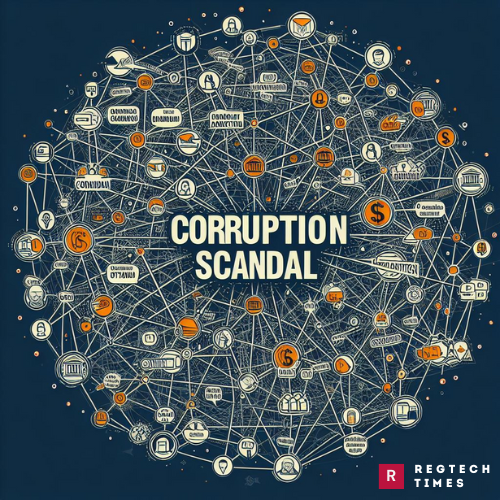In a startling turn of events, Malta’s political landscape finds itself ensnared in a web of corruption allegations that threaten to dismantle the very fabric of its governance. At the center of this maelstrom is a labyrinthine tale of deceit and malfeasance surrounding a 2015 hospital concession deal, a deal that has become emblematic of the systemic corruption plaguing the island nation.
The Vitals Deal: A Breeding Ground for Corruption in Malta
The genesis of the scandal lies in the ill-fated Vitals deal, a concession agreement brokered by the Maltese government that handed control of three public hospitals to Vitals Global Healthcare (VGH). Ostensibly aimed at improving healthcare services in Malta, the deal quickly unraveled, revealing a tangled web of kickbacks, cronyism, and financial impropriety.
Allegations of fraud and misappropriation have swirled around this arrangement, with damning evidence suggesting that key government officials lined their pockets at the expense of public welfare. The Vitals deal, once hailed as a beacon of progress, has since become a symbol of unchecked corruption and moral decay within Malta’s political establishment.
Daphne Caruana Galizia: A Beacon of Truth Amidst Darkness
No discussion of Maltese corruption would be complete without acknowledging the pivotal role played by investigative journalist Daphne Caruana Galizia. Through her fearless reporting and unwavering commitment to uncovering the truth, Caruana Galizia shone a piercing light into the darkest corners of Maltese politics, exposing the insidious nexus of power and privilege that fueled the Vitals deal and countless other scandals.
Tragically, Caruana Galizia paid the ultimate price for her courage, becoming a martyr for press freedom and a potent symbol of resistance against corruption. Her legacy lives on in the hearts and minds of those who continue to fight for justice in Malta, undeterred by the forces of oppression and intimidation.
The Implicated: Scicluna, Fearne, and Muscat
As the wheels of justice turn, several prominent figures find themselves ensnared in the widening net of corruption allegations. Among them are Central Bank of Malta Governor Edward Scicluna and Deputy Prime Minister Chris Fearne, both of whom served under former Prime Minister Joseph Muscat during the tumultuous period marked by the Vitals deal.
Scicluna and Fearne stand accused of fraud and misappropriation in connection with their roles in facilitating the Vitals deal, casting a shadow over their reputations and raising serious questions about their fitness to hold public office. Both Scicluna and Fearne have vehemently denied the accusations, asserting their innocence in the face of mounting scrutiny.
Former Prime Minister Muscat, for his part, faces mounting pressure to answer for his administration’s role in the scandal, with critics alleging that he turned a blind eye to rampant corruption within his inner circle. Charges are pending against Muscat, who was prime minister from 2013 to 2020, further deepening the political turmoil gripping Malta.
The Fallout: Calls for Resignations and Global Scrutiny
In the wake of the scandal, calls for accountability and transparency have grown louder, both within Malta and beyond its borders. Opposition figures have called for the resignations of implicated officials, arguing that their continued presence in government undermines the credibility of Malta’s democratic institutions and erodes public trust in the rule of law.
Moreover, the scandal has cast a pall over Malta’s reputation as a financial center, raising concerns about the integrity of its regulatory framework and the efficacy of its anti-corruption measures. The European Central Bank, tasked with overseeing the stability of the eurozone’s financial system, faces mounting scrutiny over its handling of the affair, with critics questioning its willingness to confront corruption within its ranks.
Conclusion: A Nation at a Crossroads
As Malta grapples with the fallout from the corruption scandal, it stands at a critical juncture in its history, poised between the forces of progress and regression. The outcome of the scandal will not only determine the fate of those implicated but also shape the future trajectory of Maltese democracy and governance.
In the crucible of crisis, Malta has an opportunity to confront its demons and emerge stronger, more resilient, and more accountable than ever before. Whether it seizes this opportunity remains to be seen, but one thing is certain: the people of Malta will not rest until justice is served and the dark shadow of corruption is lifted from their shores.


